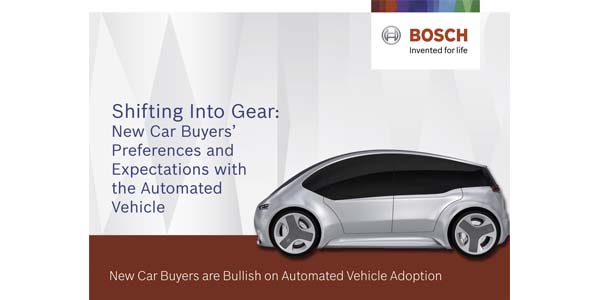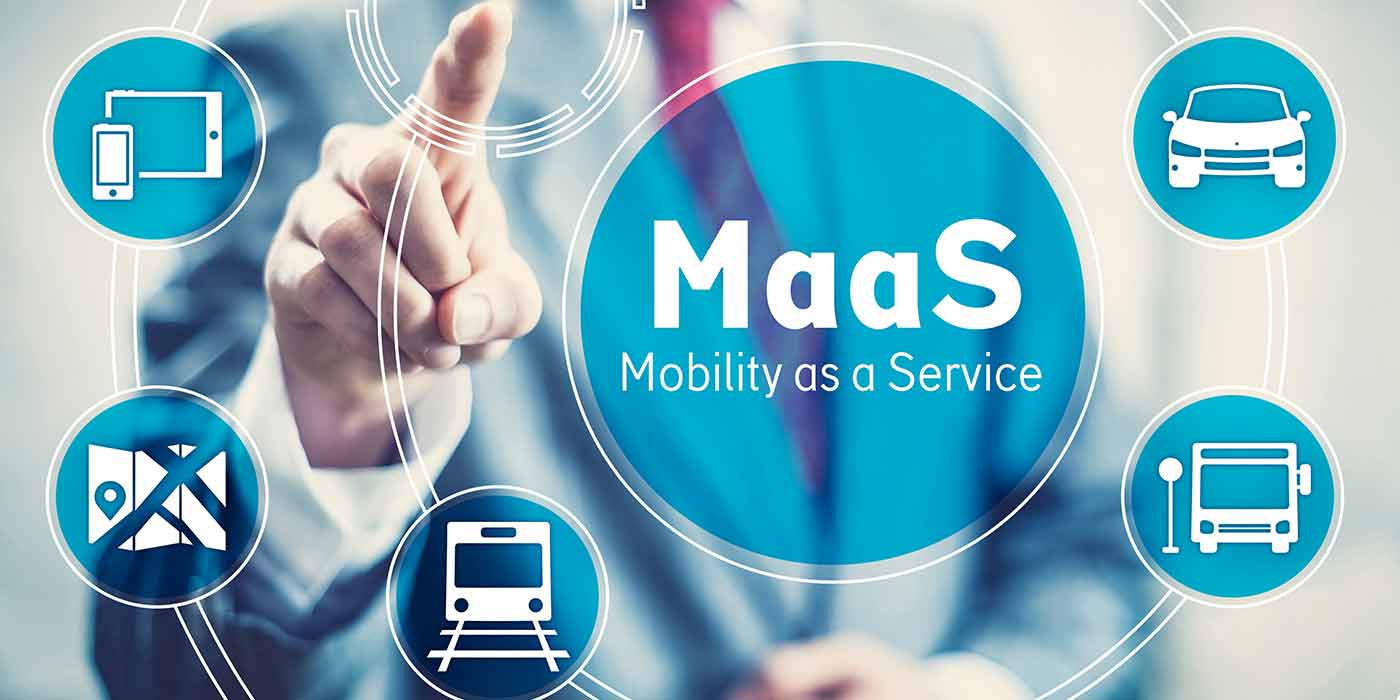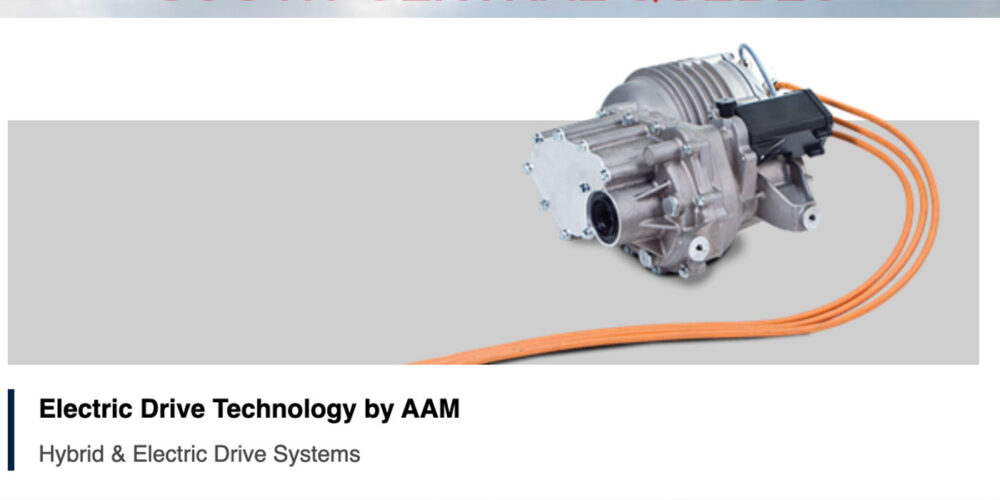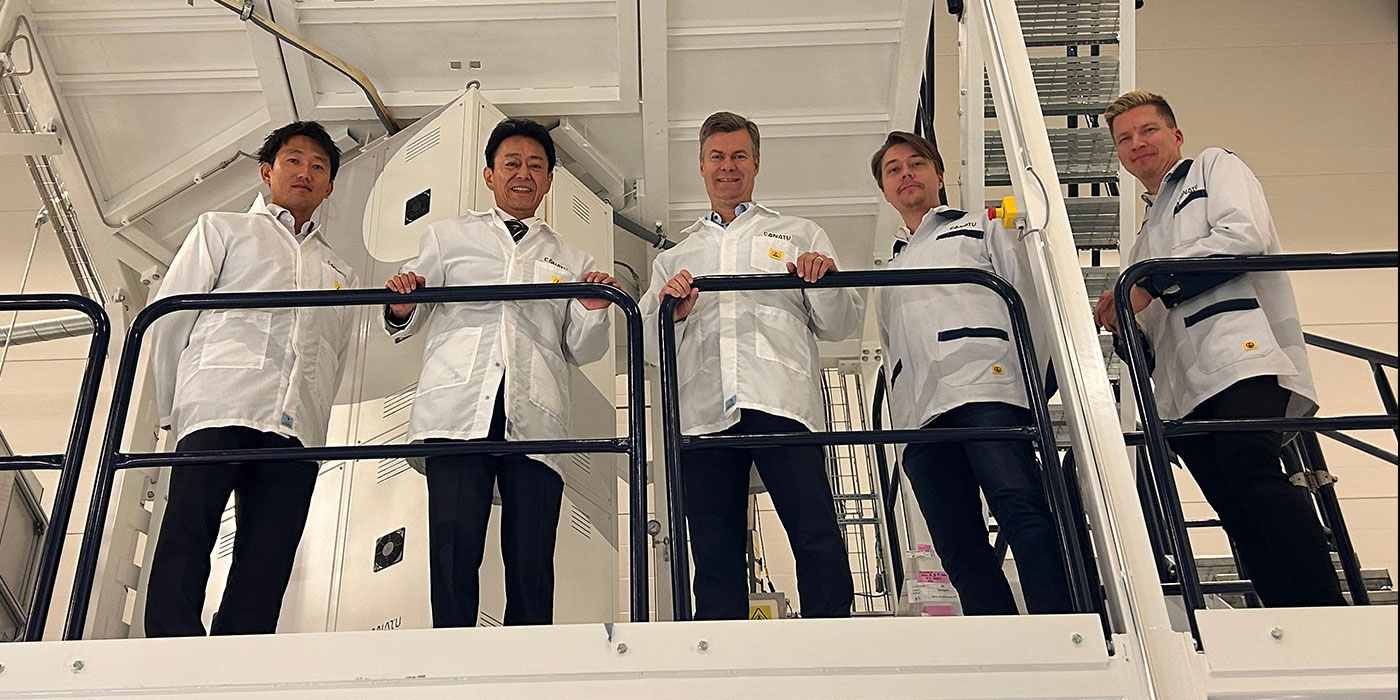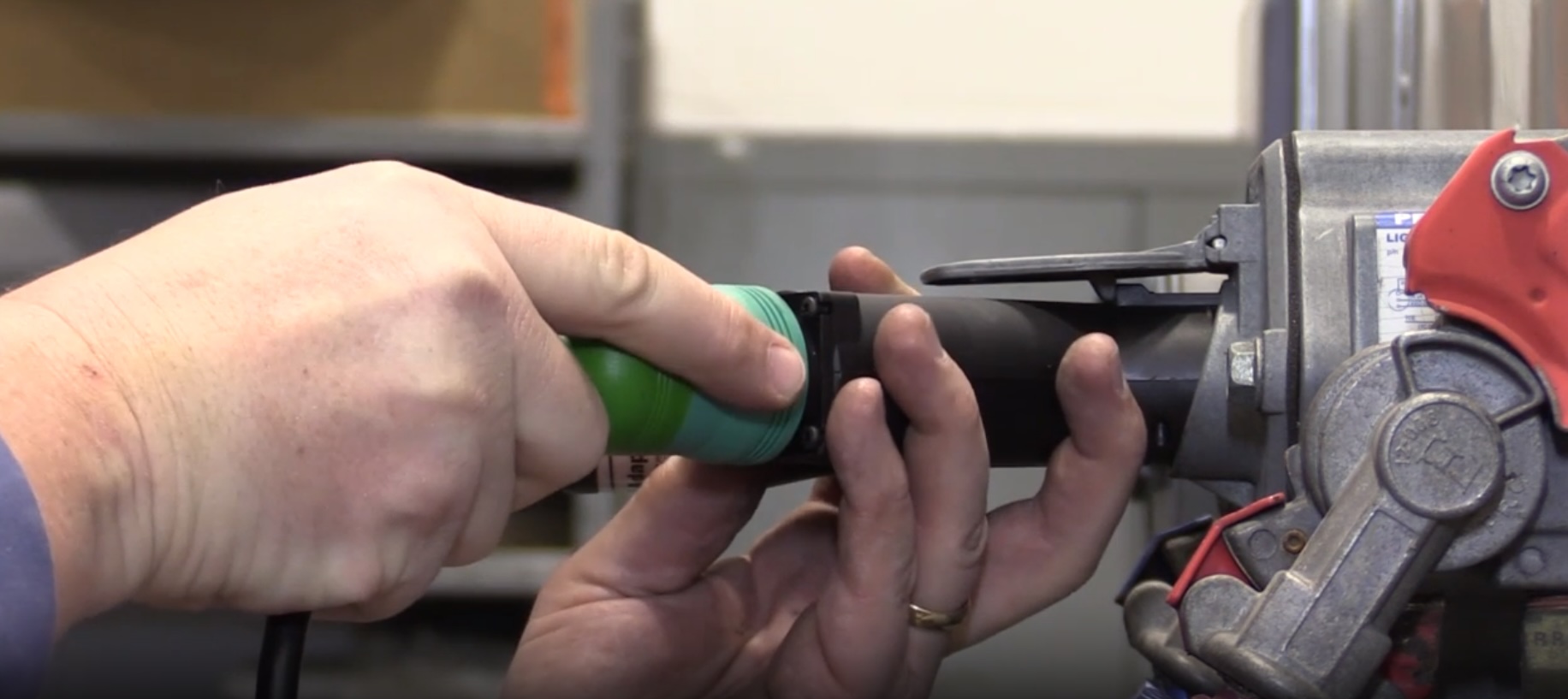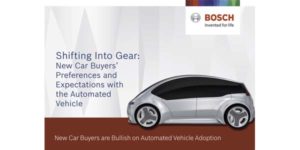
Anticipation surrounding widely available automated vehicles is growing, as more than more than half – 52 percent – of new car buyers expect to own at least one self-driving automobile in their household in the next 10 years, according to a survey recently conducted by Bosch.
The survey reached 1,000 U.S.-based new car buyers, age 18 or older, who have purchased or leased at least one vehicle within the past five model years, and intend to buy or lease a new vehicle again in the future.
Only 14 percent expect of new car buyers surveyed expect to never own at least one self-driving vehicle, while 14 percent are unsure. Of those who indicated they would own at least one self-driving vehicle, one-third of those expect all of their household vehicles to be self-driving within the next 10 years.
While a majority of consumers accept the idea of owning a self-driving automobile in the next decade, many do not understand the advanced driver assistance systems (ADAS), like automatic emergency braking (AEB), adaptive cruise control and active safety technologies, like electronic stability control (ESC), currently available on the market.
“There is clearly a lot of consumer excitement and intrigue about the topic of fully automated driving, but not a full understanding of the sophisticated options available today and the path to get there,” said Kay Stepper, vice president and regional business unit leader, driver assistance and automated driving, Robert Bosch LLC. “The industry must help to adequately manage consumer expectations and show them the specific steps to help guard against rejection or over-acceptance of these important, life-saving technologies.”
Awareness of available ADAS and active safety features is low
The survey results revealed a key trend: new car buyers see ADAS features as future innovations, not necessarily as options that are accessible now. When asked to name the No. 1 safety feature on their vehicle today, the most frequent answer from respondents was “airbag.” When asked to name the No. 1 safety feature on their vehicle in 10 years, the most frequent answer from respondents was either an ADAS or automated feature.
However, many ADAS and active safety features are available today, but the survey reveals that new car buyers have confusion about these solutions. For example, only 21 percent of new car buyers thought electronic stability control (ESC), a system that functions independently of the driver’s action and can intervene when needed to keep drivers on the road and reduce rollover accidents, was available in all new automobiles. Meanwhile, ESC, first introduced to the market by Bosch in 1995, has been a mandated feature on all vehicles since the 2012 model year.
At the same time, there is confusion about emerging future automated technologies, as 18 percent of survey respondents believe that all new vehicles on the market today are equipped with autopilot, when in fact, it is only available in limited capacity.
“Technology advances are happening thanks to innovative ideas as well as partnerships and industry collaboration, but we cannot lose sight of consumer acceptance,” said Stepper. “The industry must help consumers to understand what life-saving technology is available now through ADAS, and how it will evolve into the fully automated solutions of tomorrow. Steps such as the commitment by a number of automakers to make automatic emergency braking a standard feature in the coming years are crucial. ADAS technologies available today save lives and ultimately, help consumers become more comfortable with features on the fully automated vehicle of the future.”
New car buyers see reduced traffic accidents as main benefit of automated vehicles, but concerns remain about lack of control According to the study, new car buyers see various potential benefits to self-driving vehicles. Most notably:
- 61 percent of respondents believe a decrease in traffic accidents is a benefit of adopting automated vehicles;
- 55 percent of respondents noted more free time and lower stress levels as a benefit.
Despite these benefits, however, new car buyers are apprehensive about the reliability of automated vehicles. When asked about their greatest concerns relating to self-driving vehicles:
- 72 percent of respondents indicated lack of control is one of the biggest considerations;
- 65 percent of those surveyed also noted that the unproven technology is an issue.
“A key aspect to helping consumers overcome concerns about automated technology is to highlight the high levels of redundancy that are being built into these systems to make automated driving safe and reliable,” said Stepper.
Automated vehicles will be the new status symbol in the future
Attitudes toward automated and traditional vehicles varies among new car buyers when it comes to which option is better. Results of the survey reveal that respondents trend toward traditional vehicles as the most financially feasible. For example:
- Nearly 59 percent of respondents believe a traditional car is better when it comes to the purchase price;
- More than 47 percent of those surveyed believe repair and maintenance costs would be more manageable in a traditional vehicle compared to a self-driving one.
In terms of prestige, sustainability and comfort, however, automated vehicles are the popular choice. Specifically,
- More than 52 percent of respondents believe self-driving cars will be the next status symbol;
- Another 52 percent of respondents indicate self-driving cars will have the best fuel economy;
- Nearly 50 percent of respondents believe self-driving cars will offer the best in passenger comfort.
To see more about how Bosch is teaching the vehicle to drive and the building blocks for automated driving, visit the Bosch Automated Mobility Academy.

